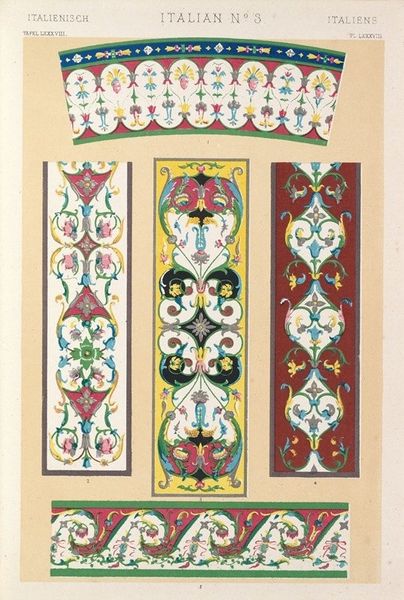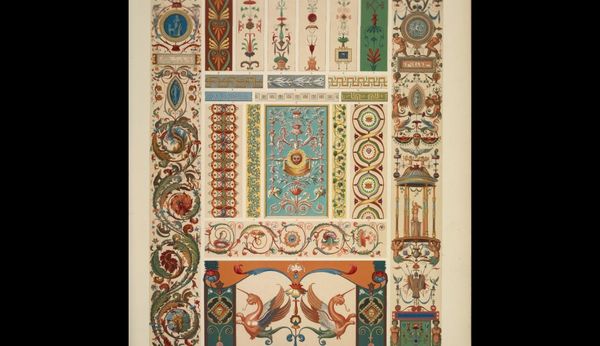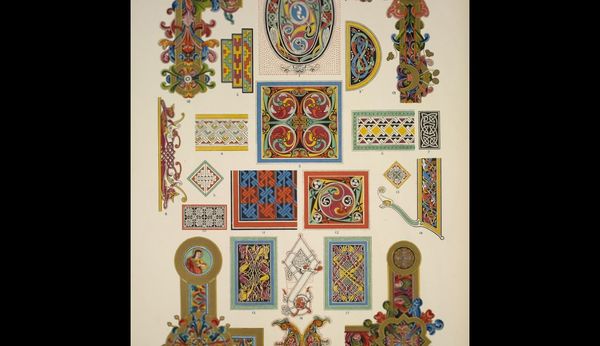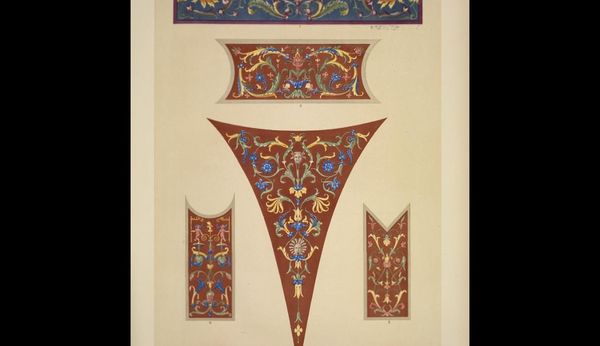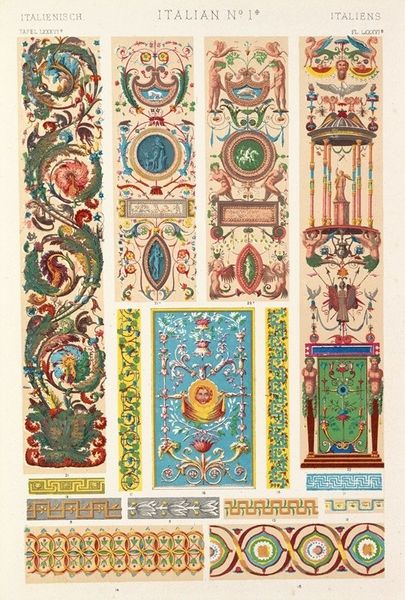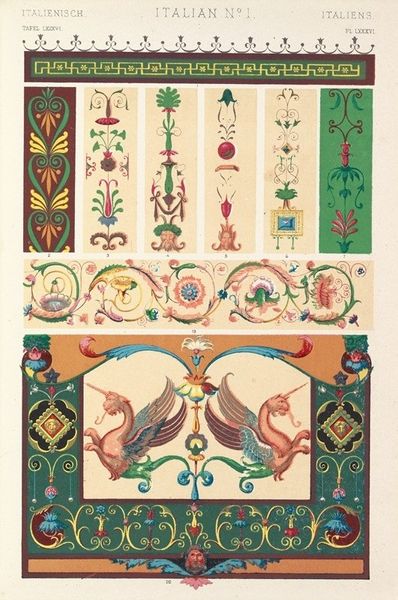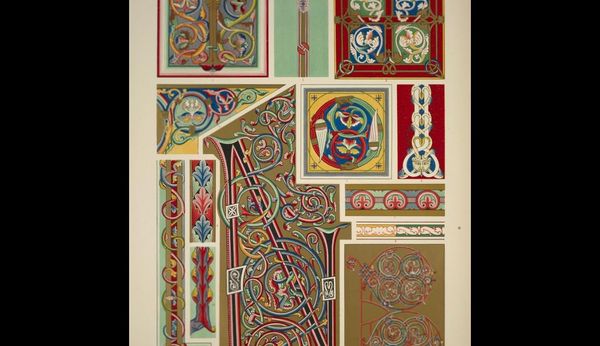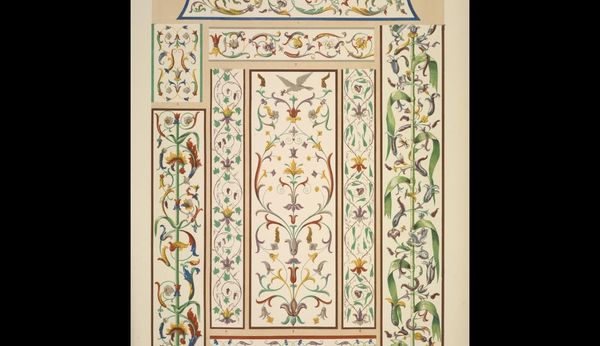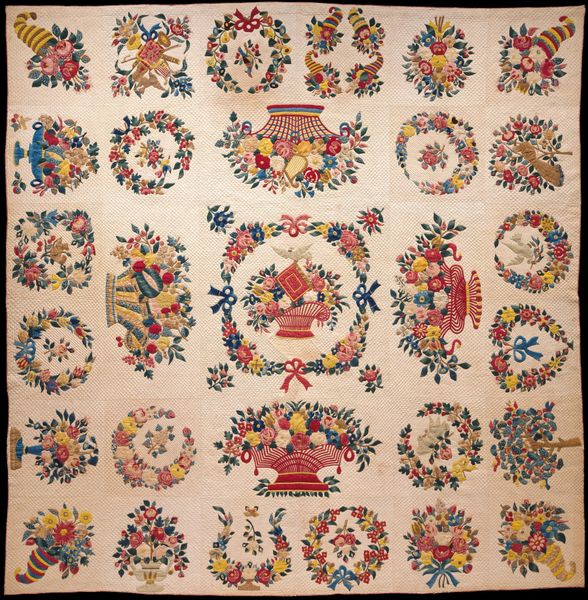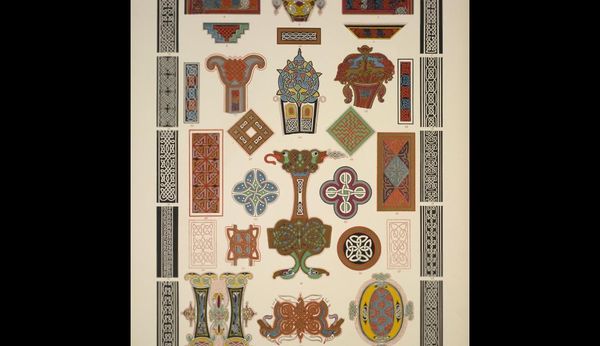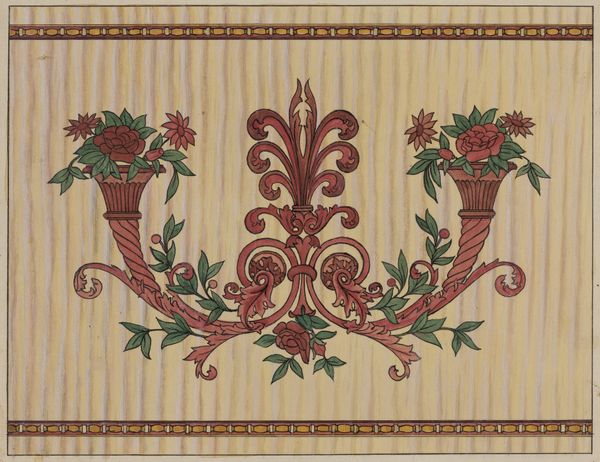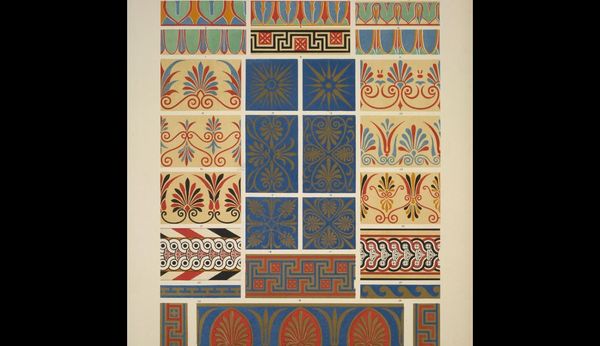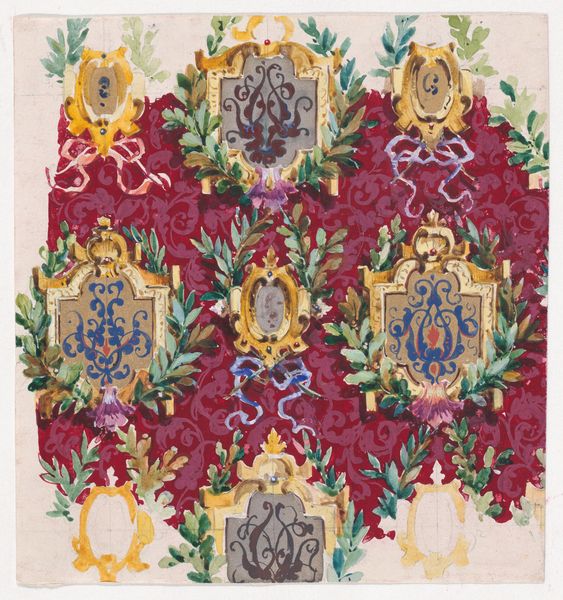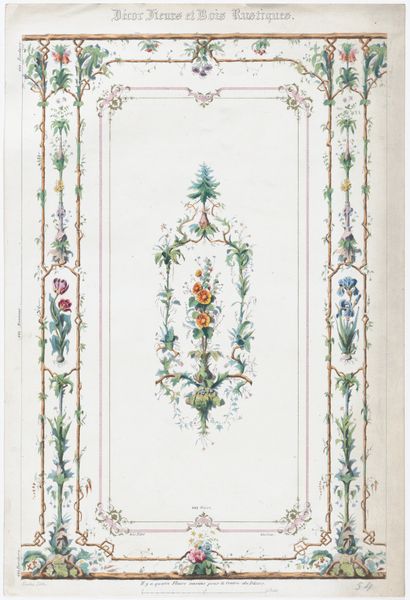
Italian Ornament no. 3. Ornaments from the Palazzo Ducale, and the Church of St. Andrea, Mantua
0:00
0:00
drawing, paper
#
drawing
#
natural stone pattern
#
loose pattern
#
animal print
#
paper
#
geometric pattern
#
tile art
#
ethnic pattern
#
geometric
#
repetition of pattern
#
vertical pattern
#
pattern repetition
#
decorative-art
#
layered pattern
Copyright: Public domain
Owen Jones created this chromolithograph, “Italian Ornament no. 3,” to document patterns he saw in the Palazzo Ducale and the Church of St. Andrea in Mantua. The prints were made through chromolithography, a 19th-century technique using multiple lithographic stones, each inked with a different color, to create complex images. The final effect mimics the appearance of hand-painted designs. The meticulous process mirrors the handcraft employed in the original Italian ornaments. Jones was trying to capture the essence of Italian Renaissance design through mechanical reproduction. But don't mistake this printmaking for mere replication! The choice of chromolithography speaks to the democratizing spirit of the Victorian era, making intricate designs accessible to a wider audience. It also highlights the era’s fascination with cataloging and disseminating historical styles. Jones’s work blurs the lines between industrial production, the craft of printmaking, and the artistry of Renaissance ornament. It encourages us to think about how techniques shape our perception and understanding of cultural heritage.
Comments
No comments
Be the first to comment and join the conversation on the ultimate creative platform.
